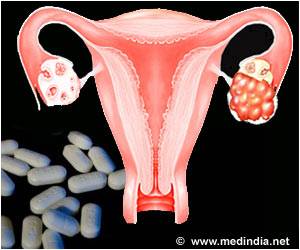Use of anthracycline-based chemotherapy has negligible cardiac toxicity in women whose tumors have BRCA1/2 mutations -- despite preclinical evidence that such treatment can damage the heart.

"This was a very relevant question to explore for women with breast cancer who are BRCA1/2 mutation carriers because they often require treatment with anthracyclines," says Barac.
"Although there was no clinical suggestion of an excess risk of heart toxicity in mutation carriers, it is always important to carry out a study to evaluate whether findings in the preclinical setting -- in laboratory animals -- are actually valid concerns clinically," says co-author Claudine Isaacs, MD, co-director of the breast cancer program at Georgetown Lombardi.
"These results are very reassuring," Isaacs adds. "Overall this is great news for our patients with BRCA mutations," says the study's co-investigator Filipa Lynce, MD, an oncologist with MedStar Georgetown University Hospital. "Our results provide reassurance that these patients do not appear to have increased heart toxicity when compared with non-mutation carriers," says Lynce, who will present the study at SABCS.
The study included 81 participants -- 39 BRCA1/2 carriers and 42 patients without the mutation. Women with metastatic disease and HER2-positive breast cancer were not included. The analysis also excluded patients who had history of hypertension because of its confounding effect on myocardial strain. The participants had an echocardiogram 45 months, on average, after treatment with anthracyclines. The study used two measures to determine heart function: left ventricular ejection fraction (LVEF) -- the percentage of blood that leaves the heart after each contraction -- and global longitudinal strain (GLS), which correlates with LVEF but "is considered to be a more sensitive, global measure of cardiac function," Barac says.
The researchers found that most women had normal LVEF (91 percent) and normal GLS (85 percent). LVEF was borderline reduced (the heart pumped a little less blood than normal) in one BRCA1/2 mutation carrier and borderline or mildly reduced in six non-mutation carriers. They also found reduced GLS present in four mutation-carriers and seven non-mutation carriers. "We found that mutation carriers who received anthracycline treatment do not have an increased risk of cardiac dysfunction, and that reduced cardiac function was very low in all patients, suggesting low risk of cardiac problems late after chemotherapy treatment," Barac says. "Our results are applicable only to patients without significant cardiovascular risk factors, particularly hypertension."
 MEDINDIA
MEDINDIA




 Email
Email










